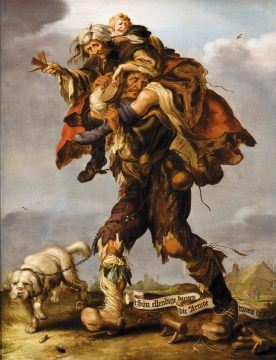Marilynne Robinson at the NYRB:

Recently, at a lunch with a group of graduate students, conversation turned to American colonial history, then to John Winthrop’s 1630 speech “A Modell of Christian Charity,” associated now with an image borrowed from Jesus, “a city on a hill.” This phrase has been grossly misinterpreted, both Winthrop’s use of it and Jesus’. In any case, the students pronounced the speech capitalist, with a certainty and unanimity that, quite frankly, is inappropriate to any historical subject, and would be, even if the students, or the teachers who gave them the word, could define “capitalist.” Because I encounter variants of this conversation in such settings all over the country, I should not be heard as criticizing any particular university when I say that such certainty is not the product of good education. Indeed, it is distinctively the product of bad education.
This characterization of Winthrop’s speech had the finality of a moral judgment, which is odd but, again, typical. For these purposes, capitalism is simply what America is and does and has always done and will do into any imaginable future. A dark stream of greed flows beneath its glittering surface, intermingling with its best works, its highest motives, and it is naive to think otherwise. Like the country itself, it is a rude, robust intrusion of unbridled self-interest upon a world whose traditional order was humane—in the best sense, civilized. Capitalism is, by these lights, original with and exclusive to us, except where Americanization has extended its long reach. This is believed so utterly that the fact that Marx was making his critique of the mature industrial/colonial economy of Britain is overlooked or forgotten.
more here.
